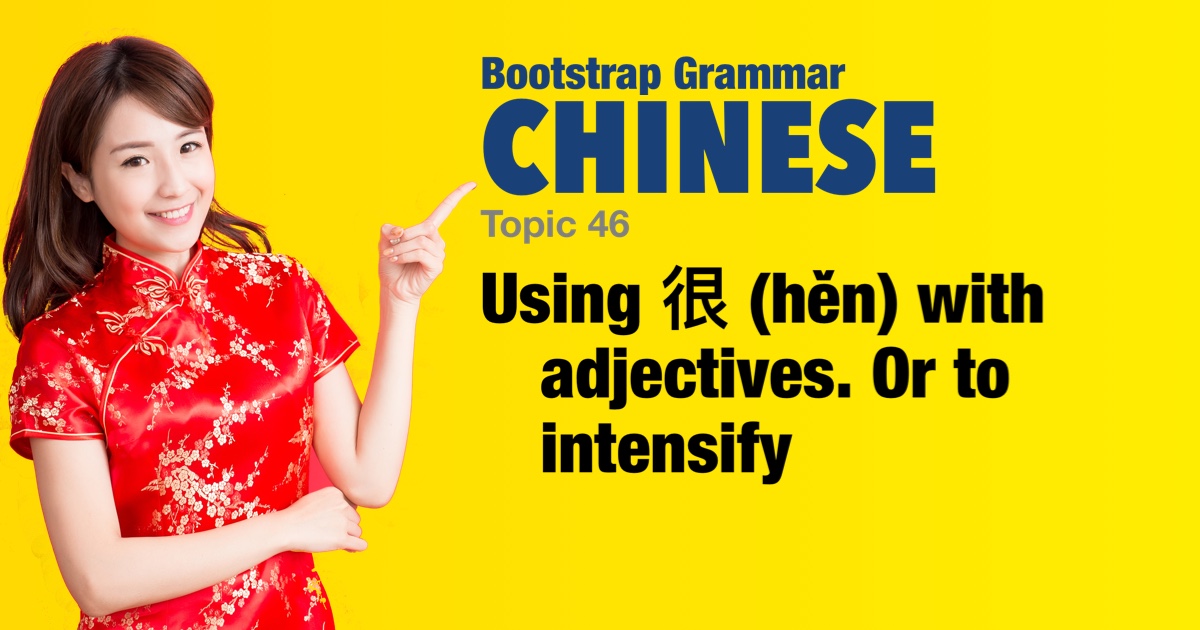Chinese grammar - Using 很 (hěn) with adjectives. Or to intensify |
|||
|
|||
The word 很 (hěn) can be confusing to students of Chinese. As we have already seen, it is used as a connector between a subject and a predicative adjective. Here it is simply 'to be'. — It has this function particularly when the adjective is just one character. And when the adjective is an opinion and not objective fact. But 很 (hěn) can also be an intensifier meaning 'very'. Indeed, when 很 is used in front of an attributive adjective it always means 'very'. To avoid ambiguity when trying to say 'very' you could use an alternative intensifier such as 非常 (fēicháng), meaning 'very' or 'extremely'. Or 特别 (tèbié) meaning 'especially' |
| Examples: | |
|
米饭很好。
mǐfàn hěn hǎo. The rice is good.
|
|
|
他很高。
tā hěn gāo. He is tall.
|
|
|
她很漂亮。
tā hěn piàoliang. She is pretty.
|
|
|
他很帅。
tā hěn shuài. He is handsome.
|
|
|
天气很冷。
tiānqì hén lěng. The weather is cold.
|
|
|
天气非常冷。
tiānqì fēicháng lěng. The weather is very cold.
|
|
|
天气特别冷。
tiānqì tèbié lěng. The weather is especially cold.
|
|
|
天气很冷吗?
tiānqì hén lěng ma? Is the weather cold?
|
|
|
天气非常冷吗?
tiānqì fēicháng lěng ma? Is the weather very cold?
|
|
|
他非常高。
tā fēicháng gāo. He is extremely tall. |
|
|
这个苹果特别大。
zhè ge píngguǒ tèbié dà. This apple is especially big. |
|
|
我非常累。
wǒ fēicháng lèi. I am very tired. |
|
|
她特别漂亮。
tā tèbié piàoliang. She is especially pretty. |
|
|
他有一辆很快的车。
tā yǒu yí liàng hěn kuài de chē. He has a very fast car.
|
|
|
花园里有很漂亮的花。
huāyuán lǐ yǒu hěn piàoliang de huā. There are very beautiful flowers in the garden.
|
|
|
我们吃很好吃的饺子。
wǒmen chī hěn hàochī de jiǎozi. We eat very delicious dumplings.
|
|
|
这里是一个很安静的地方。
zhèlǐ shì yí gè hěn ānjìng de dìfāng. Here is a very quiet place.
|
|
|
那是一本很有趣的书吗?
nà shì yì běn hěn yǒuqù de shū ma? Is that a very interesting book?
|
|
 |
|




